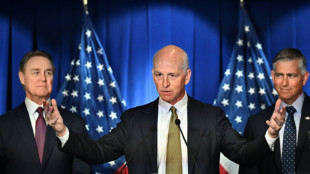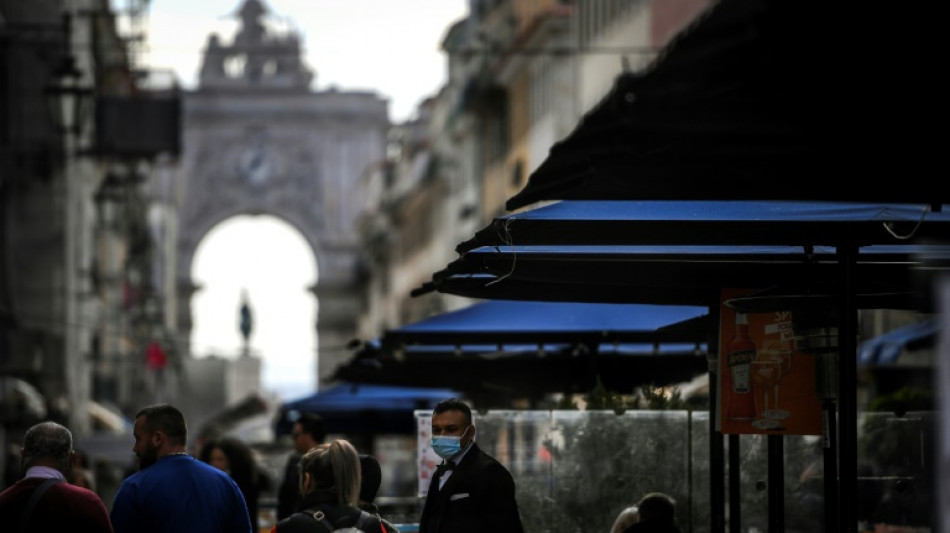
-
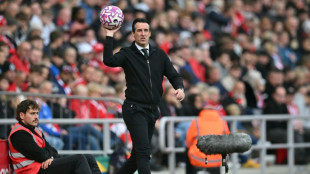 Emery seeks Europa League lift with Villa as Forest end long absence
Emery seeks Europa League lift with Villa as Forest end long absence
-
Egypt frees activist Alaa Abdel Fattah after Sisi pardon
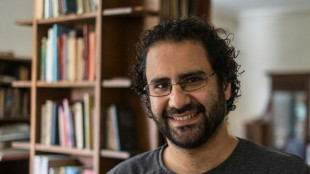
-
 Gibbs, Montgomery doubles as Lions rampage over Ravens
Gibbs, Montgomery doubles as Lions rampage over Ravens
-
Asian markets struggle as focus turns to US inflation

-
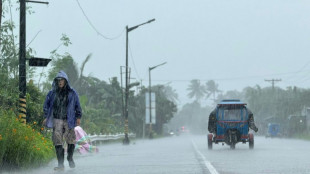 Schools shut, flights cancelled as Typhoon Ragasa nears Hong Kong
Schools shut, flights cancelled as Typhoon Ragasa nears Hong Kong
-
Maverick Georgian designer Demna debuts for Gucci in Milan
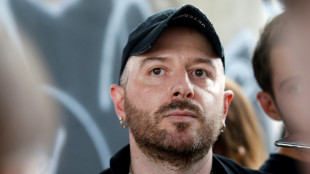
-
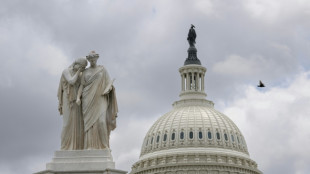 What do some researchers call disinformation? Anything but disinformation
What do some researchers call disinformation? Anything but disinformation
-
Jimmy Kimmel show to return Tuesday
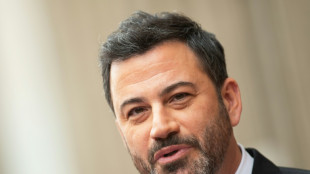
-
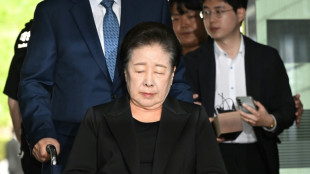 Unification Church leader arrested in South Korea
Unification Church leader arrested in South Korea
-
Singapore firm rejects $1bn Sri Lankan pollution damages
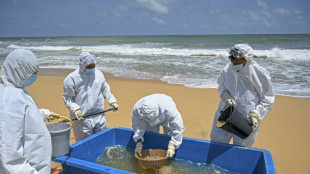
-
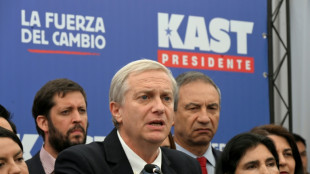 Chile presidential contender vows to deport 'all' undocumented migrants
Chile presidential contender vows to deport 'all' undocumented migrants
-
China may strengthen climate role amid US fossil fuel push
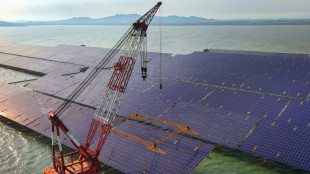
-
 Ryder Cup captains play upon emotions as practice begins
Ryder Cup captains play upon emotions as practice begins
-
Bradley defends US Ryder Cup player payments as charity boost
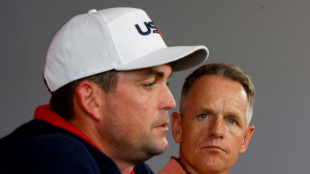
-
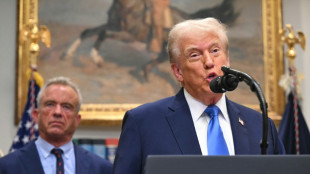 Trump ties autism risk to Tylenol as scientists urge caution
Trump ties autism risk to Tylenol as scientists urge caution
-
Dembele beats Yamal to Ballon d'Or as Bonmati retains women's award

-
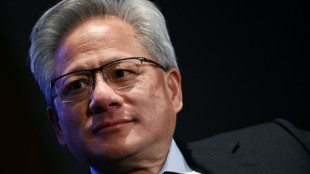 Strength in Nvidia, Apple helps lift US equities to new records
Strength in Nvidia, Apple helps lift US equities to new records
-
Man City 'keeper Donnarumma says would have stayed at PSG

-
 49ers ace Bosa to miss season after knee injury: reports
49ers ace Bosa to miss season after knee injury: reports
-
Canada wildlife decline 'most severe' in decades: WWF

-
 PSG star Dembele wins men's Ballon d'Or
PSG star Dembele wins men's Ballon d'Or
-
Napoli beat battling Pisa to maintain perfect Serie A start

-
 Spain's Aitana Bonmati wins Women's Ballon d'Or
Spain's Aitana Bonmati wins Women's Ballon d'Or
-
Jimmy Kimmel show to return Tuesday: Disney
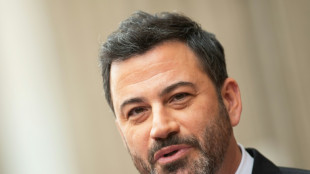
-
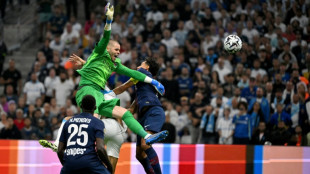 Marseille inflict first defeat of season on PSG in Ligue 1
Marseille inflict first defeat of season on PSG in Ligue 1
-
White House promises US-controlled TikTok algorithm
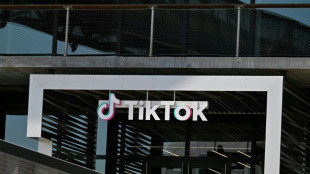
-
 Trump expected to tie autism risk to Tylenol as scientists urge caution
Trump expected to tie autism risk to Tylenol as scientists urge caution
-
Macron recognizes Palestinian state at landmark UN summit
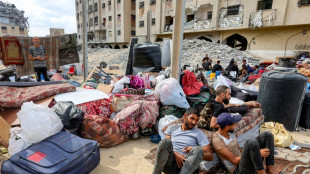
-
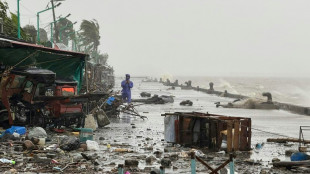 Hong Kong prepares for 'serious threat' from Super Typhoon Ragasa
Hong Kong prepares for 'serious threat' from Super Typhoon Ragasa
-
S. Korea court issues arrest warrant for Unification Church leader: Yonhap
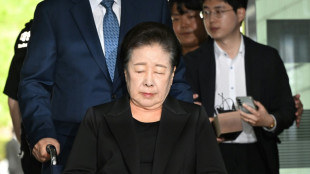
-
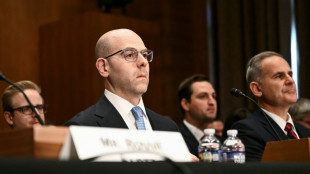 New US Fed governor says rates should be around 'mid-2%'
New US Fed governor says rates should be around 'mid-2%'
-
14 killed as rival Ecuadoran inmates fight with guns, explosives
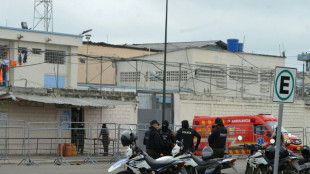
-
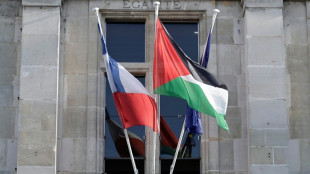 Dozens of French towns flout government warning to fly Palestinian flag
Dozens of French towns flout government warning to fly Palestinian flag
-
Nvidia to invest up to $100 bn in OpenAI data centers

-
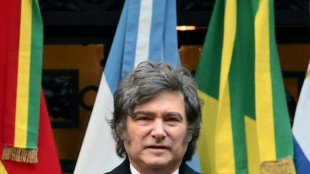 US mulls economic lifeline for ally Argentina
US mulls economic lifeline for ally Argentina
-
France to recognize Palestinian state at contentious UN
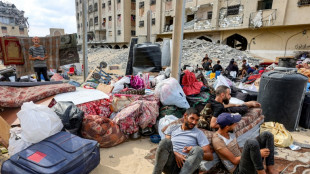
-
 Museum or sheikh? World's second largest diamond awaits home
Museum or sheikh? World's second largest diamond awaits home
-
UK charities axe Prince Andrew's ex-wife over Epstein email

-
 Google fights breakup of ad tech business in US court
Google fights breakup of ad tech business in US court
-
US pleads for new beefed-up multi-national force in Haiti

-
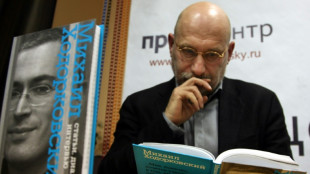 'Don't repeat our mistakes' - Russian writer Akunin warns against creeping repression
'Don't repeat our mistakes' - Russian writer Akunin warns against creeping repression
-
Stocks steady ahead of key US inflation data
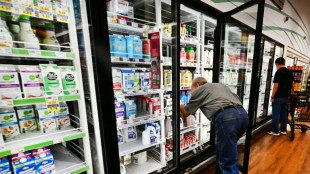
-
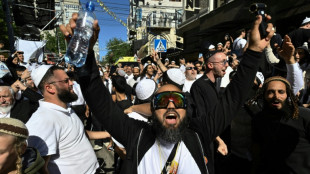 Jews flock to Ukraine for New Year pilgrimage despite travel warning
Jews flock to Ukraine for New Year pilgrimage despite travel warning
-
Trump autism 'announcement' expected Monday

-
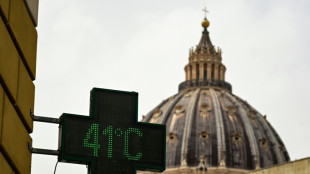 Over 60,000 Europeans died from heat during 2024 summer: study
Over 60,000 Europeans died from heat during 2024 summer: study
-
Clashes as tens of thousands join pro-Palestinian demos in Italy
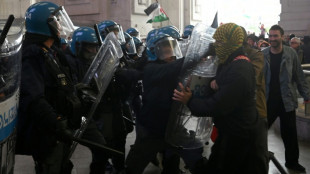
-
 UK charity axes Prince Andrew's ex-wife over Epstein email
UK charity axes Prince Andrew's ex-wife over Epstein email
-
France, others to recognize Palestinian state at UN
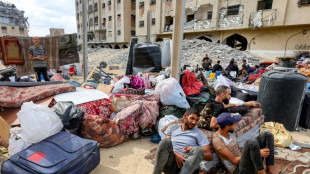
-
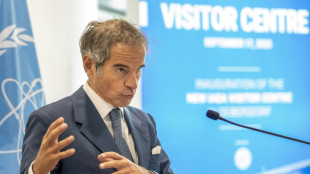 IAEA says Iran nuclear diplomacy at a 'difficult juncture'
IAEA says Iran nuclear diplomacy at a 'difficult juncture'
-
Merz tasks banker with luring investment to Germany
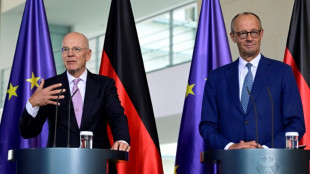

Minimum wage in focus as Portugal heads to polls
Like nearly one in four workers in Portugal, Fernanda Moreira, a food services worker at a hospital in a Lisbon suburb, earns the minimum wage.
"We don't live, we survive," said the 40-year-old mother of a 12-year-old boy whose husband earns just a bit more than her.
"We learn to live with the essentials. It is frustrating and sad."
Portugal's large and growing pool of workers like Moreira who earn the minimum wage -- and the incumbent Socialist party's plans to raise it further -- is a key issue in Sunday's snap election.
Nearly 900,000 workers in Portugal earn the minimum wage, which was raised this year by 47 euros to 822 euros ($927) per month, still one of the lowest in western Europe.
Their numbers have doubled over the past decade, according to a study by economist Eugenio Rosa, who warns Portugal "is becoming a nation of minimum wages."
Prime Minister Antonio Costa has vowed to raise the minimum wage above 1,000 euros a month by 2026 if he is re-elected. It stood at 589 euros when he took office in 2015.
"It is even possible to go beyond that," Costa said Monday during a radio interview.
But the two hard-left parties that have propped up his minority government have slammed the proposed increase as too little while the main opposition centre-right PSD party argues it goes too far.
- 'Miserable wages' -
The Communist party voted against Costa's proposed 2022 budget, prompting the early election, in part because it deemed this year's minimum wage hike too small.
The PSD argues minimum wage increases should track growth in productivity and the economy.
PSD leader Rui Rio points out that Portugal's GDP per capita has increased by an annual average of just 0.3 percent between 2001 and 2020, less than half the EU growth rate.
Rio, an economist by training, says the government should focus instead on raising the medium wage since qualified graduates are being forced to choose between "miserable wages" at home and emigration.
While the minimum wage has steadily risen, the medium wage has stagnated at 1,160 euros per month, reducing the gap between the two.
"Companies have raised their minimum wages because they were forced to by law, but they left other salaries untouched," said Joao Duque, an economist at Lisbon's School of Economics and Management (ISEG).
The government's strategy to achieve full employment has led to the development of an economy based on low wages centred on sectors like tourism and construction, he added.
This has "encouraged the emigration of more qualified workers to countries where they are paid better, and the immigration of less qualified workers," Duque said.
- 'Not our recipe' -
Portugal's unemployment rate fell to around six percent last year, its lowest level in two decades -- a figure highlighted by the Socialists throughout the campaign.
Labour Minister Ana Mendes Godinho said the "significant" rise in the minimum wage has boosted economic growth.
"Austerity advocates claimed that freezing wages is the only way to become a competitive country. It's not our recipe," she told AFP.
The policy is popular with many low-wage voters ahead of Sunday's early election, with some polls suggesting the Socialists and the PSD are virtually tied.
"We have never seen such a significant increase in the minimum wage," said Amelia Casquinha Fernandes, 60, who earns the minimum wage as a cleaner at Lisbon airport.
She said she was pleased that the Socialists had "kept their promise".
The debate comes as EU member states in December agreed on measures to better protect wage levels in Europe and give workers more power to oppose low pay.
National pay systems and minimum wages vary widely, from 332 euros a month in Bulgaria to just over 2,200 euros in Luxembourg, according to EU data.
D.Kaufman--AMWN
